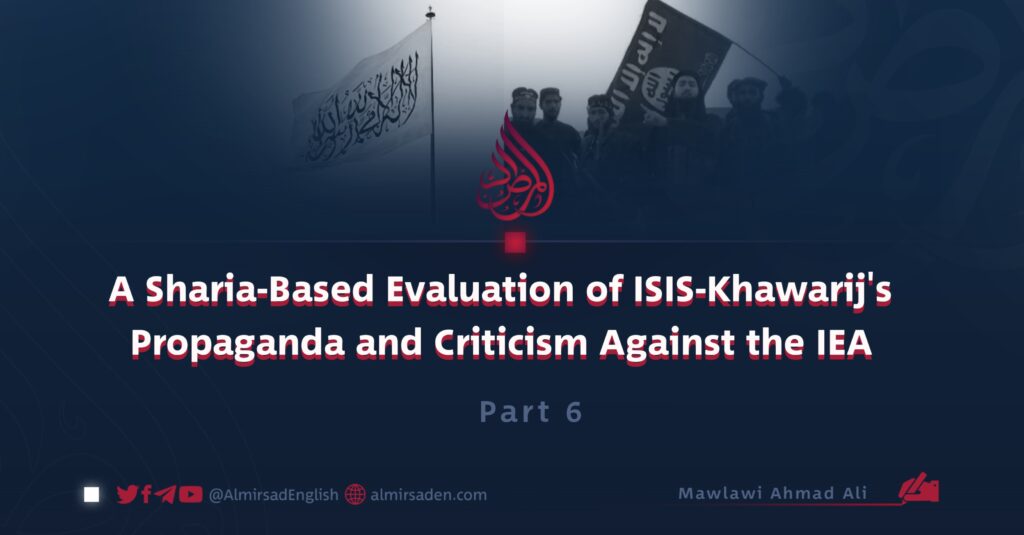Author: Mawlawi Ahmad Ali
Part 6
In the initial part of this article, it was discussed that Daesh Khawarij recently asserted in the 39th edition of the “Voice of Khorasan magazine” that the Islamic Emirate of Afghanistan (IEA) maintains covert ties with the United States and Israel.
Based on our understanding, there is no validity to the assertion that the Islamic Emirate holds covert relations with Israel. While, within the scope of Islamic Shari’ah, establishing communication with non-Muslim is not inherently prohibited. The officials of the Islamic Emirate engaged in dialogues with the United States on various subjects spanning different intervals.
These dialogues and interactions, both before and after the successful Doha Agreement, were not carried out in secrecy but rather conducted openly, known to the entire world. Moreover, they were conducted in accordance with the principles of Shari’ah.
Similarly, the leaders and officials of the Islamic Emirate occasionally participate in meetings with representatives from other nations. Afghanistan, being home to millions of Muslims, necessitates maintaining international engagements for the welfare of its populace and the regulation of social affairs. Nevertheless, all policies of the Islamic Emirate—whether domestic or foreign—are implemented within the scope of Shari’ah.
Maintaining relations and alliances with non-Muslims are neither absolutely prohibited nor entirely permissible; there are details and distinctions. Some forms of them constitute disbelief (kufr), some are permissible, and there is a difference of opinion on others. The scholars and imams of Ahl al-Sunnah wal-Jama’ah have clarified these distinctions.
An ideological allegiance or alliance with non-believers is unanimously considered disbelief. However, transactional dealings, neighborly relations, or kinship ties with non-Muslims under the guidance of Shari’ah are not forbidden.
However, cooperating or assisting non-Muslims against Muslims for worldly interests and objectives is a matter of differing views. We will elaborate on this in detail.
The Daesh Khawarij often label Muslims as disbelievers based on baseless claims or false suspicions, alleging that they collaborated with non-Muslims against Muslims, and then issue rulings of disbelief and apostasy. However, none of the Salaf (pious predecessors) has ever endorsed takfir (excommunication) solely for cooperation with non-Muslims against Muslims.
If such cooperation involves corrupt beliefs, it is indeed kufr and apostasy. But if the cooperating individual has a correct belief and merely collaborates with non-Muslims against Muslims for worldly interests, then it is a major sin, a grave crime, and a betrayal. However, it does not amount to kufr or apostasy. This is the stance of all the Salaf, including the Companions, the Tabi’un, the Tabi al-Tabi’in, the Imams of jurisprudence, and the majority of later scholars of Ahl al-Sunnah wal-Jama’ah.
A few isolated statements from later scholars might seem to suggest takfir, but these statements hold no weight against the collective stance of the Salaf and the majority of later scholars, or are meant to be understood as cautionary.
Among contemporary scholars, some support takfir. However, prioritizing their statements over the consensus of the Salaf and the majority of later scholars on such a sensitive matter is neither correct nor reasonable.
Subsequent sections of this article will delve into a comprehensive exploration of this topic. This form of cooperation is also known as “Muzaahara ‘ala al-Muslimeen” (aiding against Muslims).
